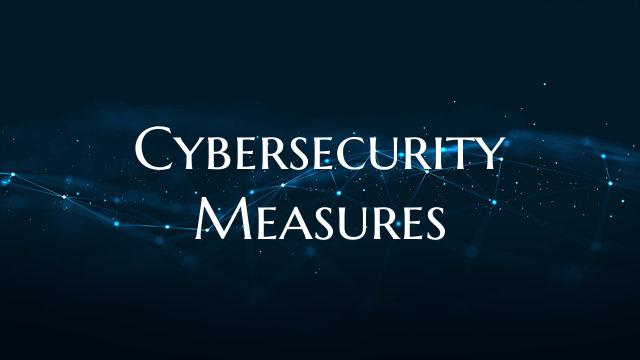Cybersecurity Measures
In today's digital age, ensuring cybersecurity is essential for individuals and organizations alike. With the increasing number of cyber threats and attacks targeting sensitive data and personal information, implementing robust cybersecurity measures has become imperative. By proactively safeguarding your online presence, you can protect yourself against potential risks and mitigate the impact of cyber incidents. Here are some effective cybersecurity measures to enhance your safety in the digital realm:
1. Strong Password Management: Start by setting strong, unique passwords for all your online accounts. Avoid using easily guessable passwords and consider using a password manager to securely store and manage complex passwords for different accounts.
2. Multi-Factor Authentication (MFA): Enable MFA wherever possible to add an extra layer of security to your accounts. MFA requires you to provide additional proof of identity beyond a password, such as a code sent to your mobile device, enhancing the protection of your accounts.
3. Keep Software Updated: Regularly update your operating system, applications, and antivirus software to patch security vulnerabilities and protect against the latest threats. Set up automatic updates to ensure that you are running the latest versions with enhanced security features.
4. Be Cautious with Emails and Links: Exercise caution when opening emails or clicking on links, especially if they are from unknown sources. Phishing attacks often disguise themselves as legitimate emails to trick users into revealing sensitive information. Verify the sender's authenticity before interacting with any links or attachments.
5. Secure Your Wi-Fi Network: Secure your home Wi-Fi network with a strong password and encryption to prevent unauthorized access. Avoid connecting to public Wi-Fi networks for sensitive transactions, as they may not be secure, putting your data at risk.
6. Data Backup and Encryption: Regularly back up your important data to an external hard drive or cloud storage to protect against data loss in case of a cyber incident. Encrypt sensitive data to ensure that it remains confidential even if accessed by unauthorized parties.
7. Employee Training and Awareness: For organizations, invest in cybersecurity training programs to educate employees about best practices and potential threats. Promote a culture of cybersecurity awareness to empower employees to recognize and report suspicious activities.
8. Incident Response Plan: Develop an incident response plan outlining the steps to follow in case of a cyber breach. This plan should include procedures for containment, recovery, and communication to minimize the impact of security incidents on your organization.
By adopting these cybersecurity measures and staying vigilant online, you can strengthen your defenses against cyber threats and protect your digital assets. Remember that cybersecurity is a shared responsibility, and by taking proactive steps to safeguard your online activities, you contribute to a safer and more secure digital environment for yourself and others.

